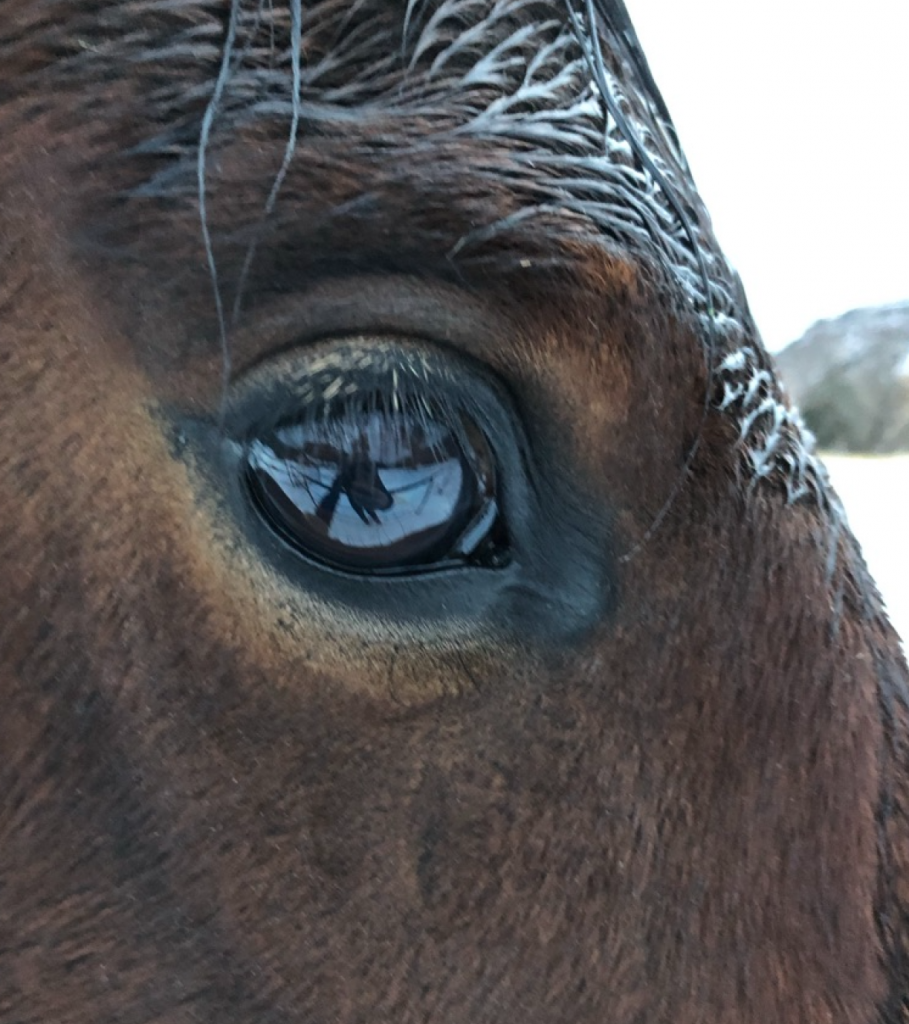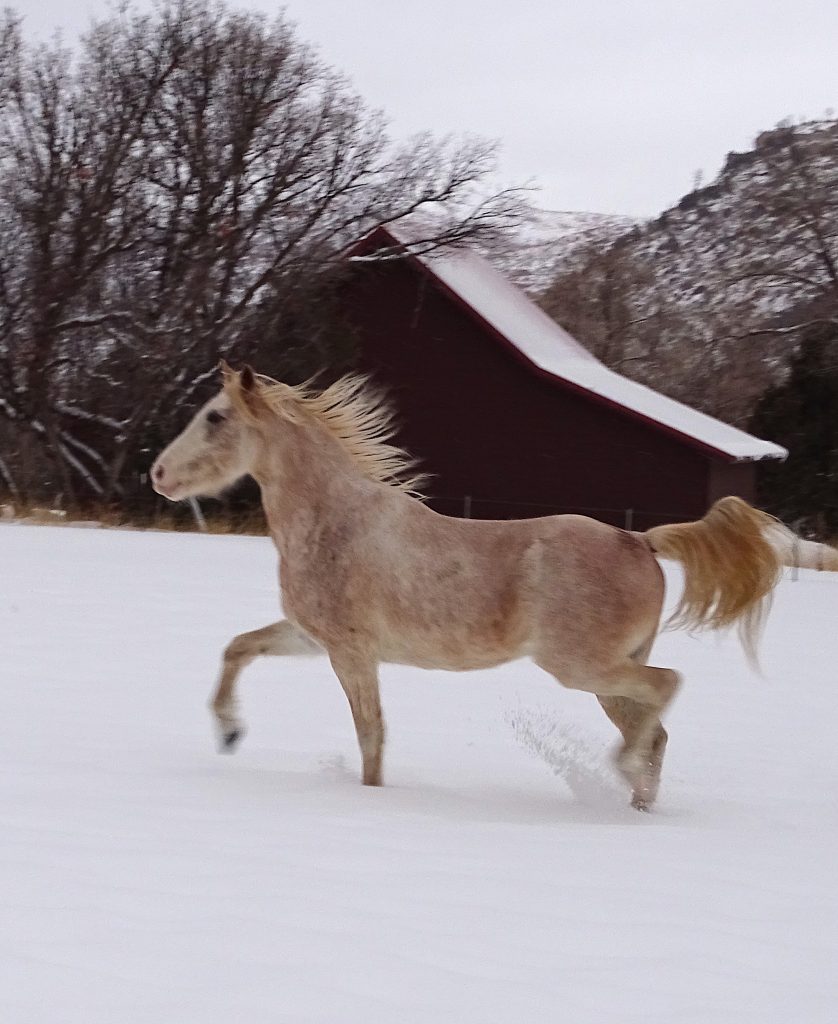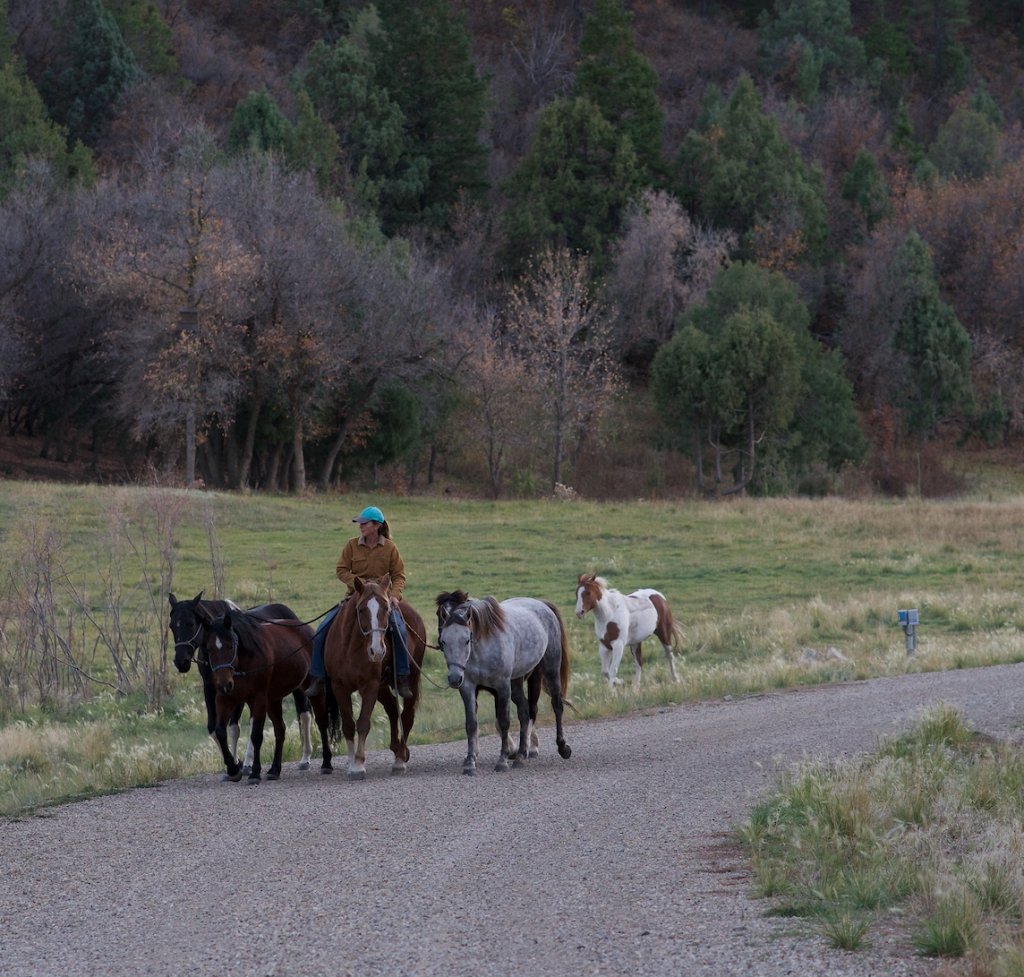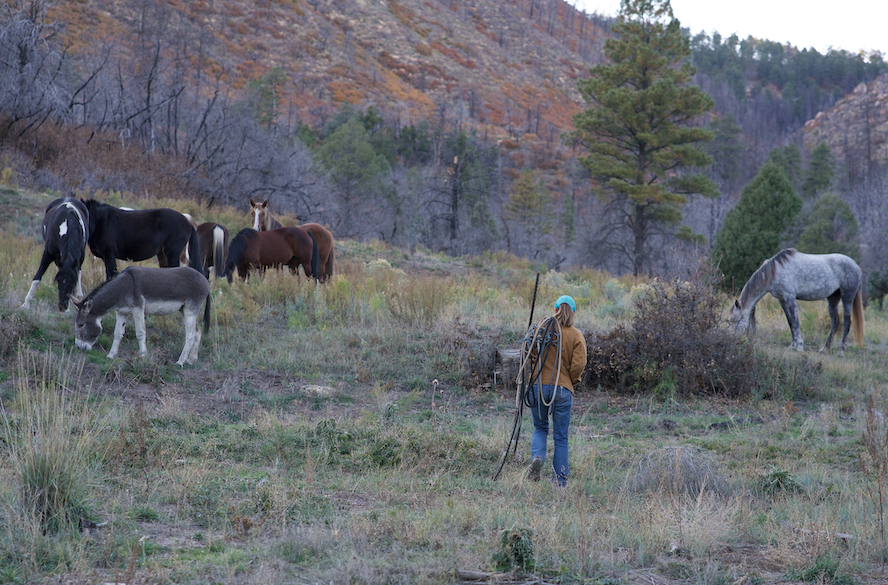 I’ll be excited to join a National Cowboy Poetry Gathering panel in a few weeks to talk about the state of horses in the 21st century. In Elko, at Western Folklife’s G Three Bar Theater, I’ll sit with Randy Rieman, Bryan Neubert, and Maria Lisa Eastman to discuss Of Horses and Riders. Come join us on Saturday, February 1. Read about Special Sessions here. Or, check out the entire NCPG schedule here.
I’ll be excited to join a National Cowboy Poetry Gathering panel in a few weeks to talk about the state of horses in the 21st century. In Elko, at Western Folklife’s G Three Bar Theater, I’ll sit with Randy Rieman, Bryan Neubert, and Maria Lisa Eastman to discuss Of Horses and Riders. Come join us on Saturday, February 1. Read about Special Sessions here. Or, check out the entire NCPG schedule here.
In the first installment of this essay, we compared the pros and cons of situations now versus a century ago for horses. In a broad stroke, I concluded, they are overcared for now and quite possibly undercared for generations ago.
What lies ahead for our equine partners?
At the moment, horses have this weird, conflicted, hybrid existence in our society: while the law and traditionalists classify them as livestock (intended to provide an asset or income), increasingly, people see them as pets.
The vast majority of horses are used recreationally. A billion dollar industry supplies horse owners with largely worthless stuff – adornments, feed, and equipment that horses don’t need. New developments are horse rescues and therapeutic centers.
They’re Beasts of Being now, not Beasts of Burden. Only a tiny fraction are used for the more traditional work, that is, ranch work, farm work, and military or mounted police work.
 Instead, as my fellow NCPG panelist, Maria Lisa Eastman, likes to say, horses have “new work.” She uses horses at her facility, Rainhorse Equine Assisted Servcies. More accurately, Eastman told me, she “partners” with horses. It’s the horses who are the therapists. Humans are just facilitators. It’s impactful stuff. Connecting with horses can be a metaphor for life skills, she said. “Clients learn to be strong but soft. They learn about boundaries, standing one’s ground, and being okay with saying, ‘No.’”
Instead, as my fellow NCPG panelist, Maria Lisa Eastman, likes to say, horses have “new work.” She uses horses at her facility, Rainhorse Equine Assisted Servcies. More accurately, Eastman told me, she “partners” with horses. It’s the horses who are the therapists. Humans are just facilitators. It’s impactful stuff. Connecting with horses can be a metaphor for life skills, she said. “Clients learn to be strong but soft. They learn about boundaries, standing one’s ground, and being okay with saying, ‘No.’”
When we think of horses’ future, we must consider the overwhelming majority of humans who have zero contact with equus caballus. We know that as the world’s population becomes increasingly urbanized, more and more humans are losing touch with nature in general, too.
In our increasingly high tech and isolated world, people are more and more removed from non-human species, horses included. It’s unhealthy. And for the horses, the situation threatens their species’ perpetuity.
Richard Louv, who coined the term, “nature-deficit disorder” and wrote Our Wild Calling: How Connecting with Animals Can Transform Our Lives – and Save Theirs wrote:
“For millennia, our species has waged war on nature, and our isolation and pathologies have only grown. Now it’s time to make peace, as individuals and as a species. Our ways may be awkward and searching, but we must do this. We know empathy is more powerful than technology.
“It’s possible to choose empathy over separation and superiority…there is an urgent need for humans to make space, share space, and get along with other species.”
Because women make up the majority of horse owners, their actions will be key to this possible development and to the future of horses. That might be a good thing since women have good capacities for listening and nurturing. That might be a bad thing because women are often guilty of anthropomorphizing and substituting consumerism for what’s really best for the horse.
As a horse advocate, I believe humans are responsible for the perpetuation of the species, equus caballus, as well as its wellness over time. For example, there are myriad studies showing that cortisol levels and heart rates go down for those humans in equine-assisted therapy programs. What about the cortisol levels of the horse?
In this day and age, when miniature horses are traveling in vans and riding elevators to visit patients in hospitals, when sport horses endure countless cruel treatments as part of their owners’ cut-throat quests for competitive success, when most horses are ridden only occasionally and live suburban lives in isolation, can we trust ourselves to treat horses as they’d like to be treated? Do laws need to be reformed? Should prospective horse owners be required to pass a license exam?
I’m reminded of a conversation I had with a rancher friend. I was telling him about some really cute “aussie-doodle” puppies I’d seen. They had am Australian Shepherd dad and a poodle for a mom.
“I feel sorry for them,” Dan said. “They must be confused about what they were born to do.”
Like an abrupt, one-rein stop, his comment pulled me up short. But it rang true: dogs have been bred for specific purposes. They are considerably happier when allowed, nurtured, and even expected to do what comes naturally to them.
Our challenge, moving forward in this world, will be to keep horses out of museums, to continue to supply purpose for them, and most of all, to do right by them.

Great comment about the “aussie-doodle!” Definitely thought provoking; thank you.